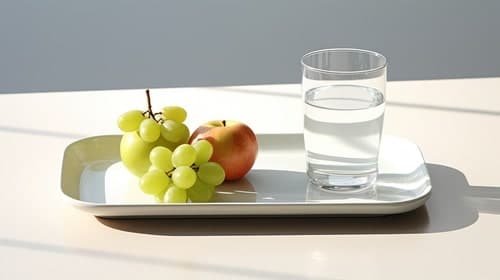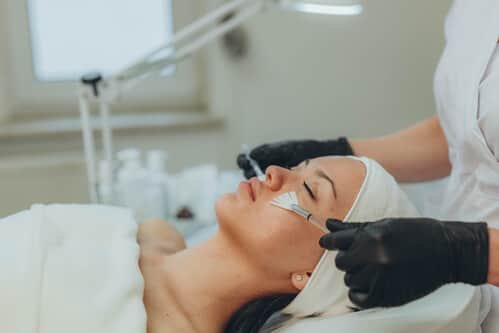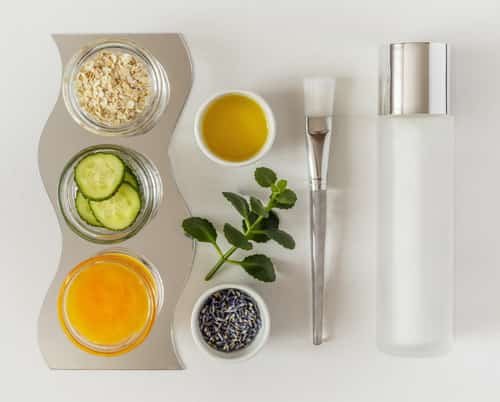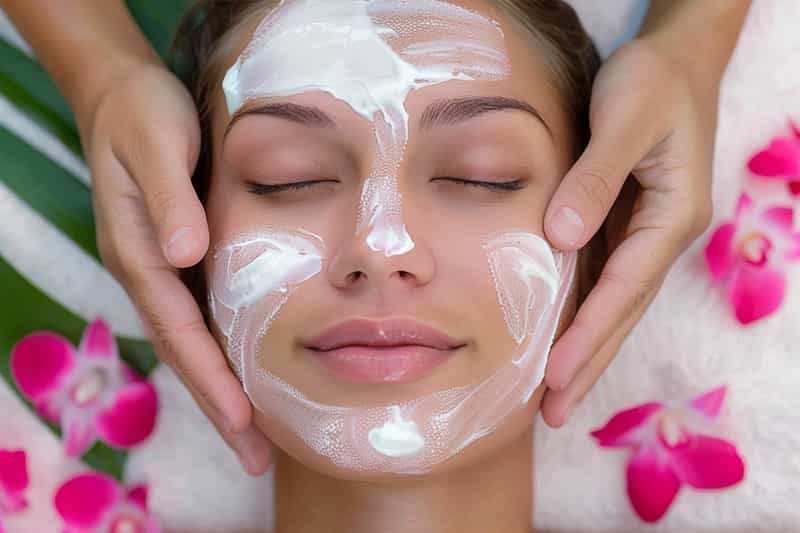In This Article
- Introduction
- Understanding Your Skin
- 1. Daily Skin Care Routine
- 2. Protecting Your Skin
- 3. Nutrition and Hydration
- 4. Targeted Treatments
- 5. Lifestyle Factors
- 6. Professional Treatments
- DIY Skin Care Remedies
- Seasonal Skin Care Tips
- Selecting the Best Products for Your Skin Type
- Conclusion
- References
- Frequently Asked Questions (FAQs)
Introduction
Getting healthy, glowing skin isn’t the same for everyone. Each person’s skin needs a custom approach to get the best results. But some tried-and-true tips can help anyone keep their skin healthy.
Understanding Your Skin
The first step in a good skincare routine is knowing your skin type. This helps you pick the right products. There are five main skin types:
- Normal: balanced with few issues
- Oily: shiny with possible breakouts
- Dry: dry and may feel tight or coarse
- Combination: mix of oily and dry areas
- Sensitive: easily irritated and reacts to products
Understanding your skin type helps you choose the right skincare products. Remember that your skin can change as you age, so check your skin type regularly.
Importance of Skin Care
Taking care of your skin is not just about looks. The skin is the largest organ of the human body.. It protects us from harmful things, keeps us warm or cool, and helps us feel things. If we don’t care for it, we might get skin problems, infections, or other health issues.
1. Daily Skin Care Routine

The key to healthy, glowing skin is sticking to a routine. A daily skincare routine can help keep your skin balanced and radiant. Here are the basic steps everyone should follow for beautiful skin:
Cleansing
Cleansing your face is the initial step in any skincare regimen. Doing it twice daily removes dirt, oil, and makeup that can block pores and cause pimples. Use a gentle face wash that matches your skin type to prevent irritation.
Exfoliating
Exfoliation removes dead skin cells, making your skin smooth and glowing. But don’t overdo it, as too much can harm your skin, causing irritation and redness. Use gentle exfoliants and moisturize afterwards to keep your skin healthy and balanced.
Toning
Toning helps balance your skin’s pH level after cleansing and prepares it to better absorb other skincare products, like serums and moisturizers. For the best results, look for toners with natural ingredients, like aloe vera or chamomile, that match your skin type.
Moisturizing
Moisturizing keeps your skin hydrated and smooth. It helps lock in moisture and stops dryness. Pick a good moisturizer for your skin type and use it every morning and night for the best results.
2. Protecting Your Skin
Sun exposure is a significant cause of early aging and can lead to skin cancer. So, it’s essential to protect your skin from harmful UV rays daily, even when it’s cloudy. Here are some ways to protect your skin:
Sunscreen
Use a broad-spectrum sunscreen with at least SPF 30 every day. If you’re outside for long periods, reapply every two hours. Make sure the sunscreen is non-comedogenic and compatible with your skin type.
Hats and Clothing
Wearing protective clothing like hats and long-sleeved shirts can also help shield you from the sun’s rays.
3. Nutrition and Hydration

What you eat and drink can impact how your skin looks and feels. Here are some easy tips for getting healthy, glowing skin from the inside out:
- Drink lots of water to stay hydrated.
- Consume a well-rounded diet rich in fruits, vegetables, and healthy fats.
- Cut down on sugar and processed foods.
- Think about taking supplements like vitamins C and E.
- Limit how much alcohol and caffeine you have.
Follow these tips, and you’ll see improved health and skin’s natural glow.
Water
Drinking enough water is critical to keeping your skin hydrated and healthy. Strive to drink at least 8 glasses daily. This keeps your body hydrated, boosts energy, helps digestion, and lifts mood. Staying hydrated is essential for feeling good.
Healthy Fats
Healthy fats in foods like avocados, salmon, and nuts keep skin soft, moist, and glowing. They also help overall health by providing essential nutrients for the brain and heart and reducing body inflammation.
Skin soft, moist, and glowing. They also help overall health by providing essential nutrients for the
Antioxidants
Fruits and veggies are packed with antioxidants that protect your skin from harmful free radicals, which can cause early aging and skin problems. Eating various colorful fruits and veggies gives you a range of nutrients that keep your skin healthy and vibrant.
4. Targeted Treatments

Skincare isn’t just about a daily routine. Sometimes, we need extra help with acne, wrinkles, or dark spots that our usual routine can’t fix. Here are some treatments you might want to add for better skincare:
Acne Treatments
Using a spot treatment or an oil-free moisturizer with salicylic acid can help clear up pores and reduce breakouts for people with acne. Over time, this can lead to more precise, healthier skin. But if your acne keeps returning, seeing a dermatologist for personalized advice and better treatments is a good idea.
Our Best Recommended Product For Acne And Scars
Check Out
Anti-Aging Products
Look for skincare products with retinol or hyaluronic acid to fight wrinkles and fine lines. These ingredients can improve your skin’s texture and hydration. Be patient and use them regularly, as it usually takes a few weeks to see results. Also, use a daily sunscreen to protect your skin and eat a balanced diet rich in antioxidants for overall skin health.
Our Best Recommended Anti-Aging Product
Check Out
Hyperpigmentation Treatments
Use vitamin C or glycolic acid products in your skincare routine if you have dark spots or uneven skin tone. These can help brighten and even out your skin over time. See a dermatologist for more specific treatments like chemical peels or laser therapy if the issue continues.
5. Lifestyle Factors
Other lifestyle choices can impact your skin’s health and look. Here are some essential habits you might want to change for better and healthier skin:
Smoking
Smoking harms your skin by breaking down collagen and elastin, causing wrinkles and sagging. It also cuts down blood flow, making it challenging for your skin to heal. Quitting smoking can make your skin healthier, bringing back its natural glow and elasticity over time.
Stress
Stress can cause many skin problems, including breakouts, eczema, and early aging. It raises cortisol levels, leading to inflammation and poor skin function. Try stress-relief activities like yoga or meditation, and get enough sleep to manage stress. Adding mindfulness to your daily routine can also really help your skin.
Sleep
Good sleep is vital for healthy skin. When you sleep, your body repairs and renews skin cells. Aim for 7-9 hours of sound sleep each night to improve your skin’s look and feel. Keeping a regular sleep schedule and relaxing bedtime routine can help you get the sleep your skin needs.
Exercise
Regular exercise boosts blood flow, bringing more oxygen and nutrients to your skin, which keeps it healthy. It also reduces stress by releasing endorphins and helps you sleep better, which are essential for glowing skin. Try to get at least 30 minutes of moderate activity like brisk walking, cycling, or swimming most days of the week for noticeable benefits to your skin and overall health. Plus, exercise helps detoxify your body through sweat, making your skin more transparent.
6. Professional Treatments

Sometimes, even with our best efforts and dedicated skincare routines, our skin needs professional help to look its best. Here are some advanced treatments a qualified dermatologist or skincare specialist can offer to help you achieve healthier, more radiant skin:
Facials
A facial is a thorough skincare treatment that deeply cleanses, exfoliates, and nourishes the skin. It helps remove impurities and dead skin cells, improves circulation, and boosts collagen production, leading to firmer and smoother skin. Regular facials can also help manage various skin conditions and keep your skin glowing.
Chemical Peels
Chemical peels use different acids to exfoliate the skin by removing dead skin cells and encouraging new cell growth. These treatments can significantly improve skin texture, reduce hyperpigmentation, fine lines, and acne scars, and give your skin a healthy glow. A dermatologist can recommend the right type and strength of chemical peel based on your skin type and concerns.
Laser Therapy
Laser therapy uses concentrated light to target and treat skin issues like wrinkles, acne scars, and dark spots. This advanced treatment can improve skin texture and tone, reduce redness and pigmentation, and boost collagen production for smoother, healthier-looking skin. Laser therapy is an excellent option for those looking for significant improvements and can be tailored to individual skin concerns.
These professional treatments can help you get the beautiful, healthy skin you want and address specific issues that might be hard to manage with at-home routines alone.
DIY Skin Care Remedies

Making your skincare remedies at home is both fun and effective. You can choose what goes on your skin and feel accomplished about it. Here are some easy DIY skincare treatments you can try:
1. Honey and Yogurt Mask
Ingredients:
- 1 tablespoon of honey
- 1 tablespoon of plain yogurt
Instructions:
Mix the honey and yogurt in a bowl until smooth. Apply it to your face, leave it on for 15-20 minutes, and rinse with warm water. Thanks to the honey’s antibacterial properties, this mask moisturises and soothes your skin. Perfect for all skin types, use it once or twice a week.
2. Oatmeal Exfoliating Scrub
Ingredients:
- 2 tablespoons of oatmeal
- 1 tablespoon of honey
- 1 tablespoon of water
Instructions:
Mix the oatmeal, honey, and water in a bowl. Gently massage the mixture onto your face in circular motions to exfoliate and clean your skin. Rinse with lukewarm water. Oatmeal is a gentle exfoliant, making this scrub ideal for sensitive skin. Use it once a week for a smooth complexion.
3. Avocado and Olive Oil Hydrating Mask
Ingredients:
- 1/2 ripe avocado
- 1 tablespoon of olive oil
Instructions:
Mash the avocado and mix it with olive oil until creamy. Apply to your face and let it sit for 15-20 minutes, then rinse with cool water. Avocado and olive oil provide deep hydration, perfect for dry skin. Use once a week to keep your skin soft.
4. Green Tea Toner
Ingredients:
- 1 cup of brewed green tea (cooled)
- 1 teaspoon of apple cider vinegar
Instructions:
Mix the green tea with apple cider vinegar. Pour it into a spray bottle and use it as a toner after cleansing your face. Green tea’s antioxidants protect your skin and apple cider vinegar balances pH. Use this toner daily.
5. Sugar and Coconut Oil Lip Scrub
Ingredients:
- 1 tablespoon of sugar
- 1 tablespoon of coconut oil
Instructions:
Mix the sugar and coconut oil. Gently rub the mixture on your lips in circular motions to exfoliate. Wipe off with a damp cloth. This scrub keeps your lips smooth and hydrated. Use it 1-2 times a week.
These DIY treatments are cost-effective and let you personalize skin care with natural, safe ingredients. Perform a patch test beforehand to check for any allergic reactions. Incorporating these natural remedies into your routine can give you healthier, more radiant skin without expensive products.
Seasonal Skin Care Tips

Your skin’s needs change with the seasons. Here are some easy tips to help your skin stay glowing all year:
Winter
- Moisturize Daily: Focus on dry areas like elbows, knees, and hands to keep them from getting rough and cracked.
- Use a Humidifier: Add moisture to the air at home to fight the drying effects of indoor heat.
- Protect Your Skin: Wear scarves and hats to shield your skin from harsh winds and prevent chapping.
Spring
- Exfoliate Regularly: Get rid of dead skin cells built up during winter for fresh, glowing skin.
- Switch to Lightweight Moisturizers: Use lighter moisturizers as it gets warmer to avoid greasy skin.
- Wear Sunscreen: Apply sunscreen when you’re outside, even on cloudy days, to protect from sun damage.
Summer
- Stay Hydrated: Drink lots of water and eat fruits and veggies to keep your skin hydrated.
- Use Lightweight, Oil-Free Sunscreen: Apply daily to protect against UV rays and prevent sunburn.
- Keep Your Skin Cool: Use a facial mist during the day to refresh and cool your skin.
Fall
- Transition to Thicker Moisturizers: Use richer moisturizers as it gets cooler to lock in moisture.
- Add Nourishing Facial Oils: Use facial oils for extra hydration and protection against windy weather.
- Incorporate Antioxidants: Use products with antioxidants to fix summer sun damage and prep your skin for colder weather.
Changing your skincare routine with the seasons lets you keep your skin healthy and glowing all year. Beautiful skin needs regular care and effort. A mix of professional treatments, DIY remedies, and seasonal changes can help you keep your skin radiant. Always check with a dermatologist for advice specific to your skin needs. With the proper care, your skin will reward you with a glowing complexion. So, treat yourself to these tips for beautiful, radiant skin! Keep shining!
Selecting the Best Products for Your Skin Type

When it comes to skincare, not all products are the same. It’s essential to pick the right ones for your skin type to get the best results and keep your skin healthy. Here are some basic tips:
- Dry skin: Look for products with ingredients like hyaluronic acid, glycerin, and ceramides. These help keep your skin moisturized all day.
- Oily skin: Choose oil-free and non-comedogenic products. They help control oil without clogging your pores, which reduces breakouts.
- Sensitive skin: Use gentle, fragrance-free products with soothing ingredients like aloe vera or chamomile. These calm irritated skin and reduce reactions.
- Combination skin: Use products that address specific needs, like a lightweight moisturizer for dry areas and oil-absorbing products for the T-zone. This way, each part of your face gets the proper care.
Always test new products on a small skin patch first to avoid reactions. Talk to a dermatologist if you have allergies or skin conditions before trying anything new. With the right routine and products for your skin type, you can have healthy, glowing skin. So, take care of your skin, choose wisely, and let your natural beauty shine! Keep glowing, and stay confident!
This table summarizes the key points for achieving and maintaining healthy, radiant skin, covering various aspects from daily routines to professional treatments and lifestyle factors.
| Aspect | Description |
|---|---|
| Skin Types | Normal, Oily, Dry, Combination, Sensitive. Understanding your skin type helps choose appropriate products. |
| Daily Routine | Cleansing, Exfoliating, Toning, Moisturizing. Consistent routine helps maintain balanced, radiant skin. |
| Sun Protection | Use broad-spectrum SPF 30+ sunscreen daily. Wear protective clothing like hats and long-sleeved shirts. |
| Nutrition | Drink plenty of water, eat a balanced diet rich in fruits, vegetables, and healthy fats. Limit sugar and processed foods. |
| Targeted Treatments | Use specific products for acne, anti-aging, or hyperpigmentation as needed. |
| Lifestyle Factors | Quit smoking, manage stress, get adequate sleep, and exercise regularly for better skin health. |
| Professional Treatments | Consider facials, chemical peels, or laser therapy for advanced skincare needs. |
| DIY Remedies | Try homemade masks and scrubs using natural ingredients like honey, yogurt, and oatmeal. |
| Seasonal Care | Adjust skincare routine based on seasonal changes (e.g., more moisturizing in winter). |
| Product Selection | Choose products suitable for your skin type and concerns. Always patch test new products. |
Conclusion
Taking care of your skin doesn’t need to be complicated or pricey. You can get beautiful, glowing skin at home with the right ingredients and routine. Use natural remedies like DIY treatments, change your seasonal routine, and pick products that suit your skin type. Always do a patch test before trying something new, and see a dermatologist if you have any concerns or allergies. By following these tips, your skin will look great. Keep glowing!
References
To further support the information presented in this article, the following references from reputable sources provide additional insights:
American Academy of Dermatology Association: Skin Care Tips
- Mayo Clinic:Dry Skin Care: Tips for Relief
- WebMD:Green Tea Benefits for Skin
- Healthline:10 Natural Skin Care Ingredients
- Cleveland Clinic:Winter Skin Care Tips
- National Center for Complementary and Integrative Health (NCCIH):Herbs at a Glance: Aloe Vera
- Dermatology Times:Antioxidants in Skin Care
- Harvard Health Publishing: Understanding SunscreenConsulting these sources will provide a more comprehensive understanding of effective skincare practices and the benefits of natural remedies.
- Harvard Health Publishing: Understanding SunscreenConsulting these sources will provide a more comprehensive understanding of effective skincare practices and the benefits of natural remedies.
- Dermatology Times:Antioxidants in Skin Care
- National Center for Complementary and Integrative Health (NCCIH):Herbs at a Glance: Aloe Vera
- Cleveland Clinic:Winter Skin Care Tips
- Healthline:10 Natural Skin Care Ingredients
- WebMD:Green Tea Benefits for Skin
Frequently Asked Questions (FAQs)
1. What’s the best skincare routine for dry skin?
Use a gentle cleanser, alcohol-free toner, and a hydrating moisturizer with ingredients like hyaluronic acid, glycerin, and ceramides for dry skin. Put on moisturizer while your skin is damp to keep it moist.
2. How often should I exfoliate my skin?
The frequency of exfoliation depends on your skin type. Most people find 2-3 times a week to be enough. If you have sensitive skin, once a week might be enough, but if your skin is oily, you might need to do it more often.
3. What type of sunscreen should I use?
Apply a broad-spectrum sunscreen with a minimum SPF of 30. If you have oily skin, go for an oil-free formula. If your skin is dry, a moisturizing sunscreen is better.
4. Are natural remedies as good as commercial skincare products?
Natural remedies can work for some people and specific skin issues. Always do a patch test first to ensure you don’t have a bad reaction. Talking to a dermatologist before adding new things to your routine is also a good idea.
5. How should I change my skincare routine for different seasons?
Adjust your routine with the seasons:
- In winter, use thicker moisturizers and maybe a humidifier.
- In summer, use lightweight, oil-free products.
- Always wear sunscreen no matter the season.
6. Why is patch testing new skincare products essential?
Patch testing can help you determine if you’re allergic or sensitive to a new product. Put a small amount on your inner arm or behind your ear and wait 24-48 hours to see if there’s a reaction.
7. Can I use the same skincare products all year?
You can use some essential products like cleansers and moisturizers all year, but you might need to adjust others. For example, use thicker creams in winter and lighter, non-comedogenic products in summer.
8. How do I find out my skin type?
Notice how your skin feels after cleaning it to figure out your skin type. Dry skin feels tight, oily skin looks shiny, sensitive skin might sting or turn red, and combination skin is different in the T-zone and cheeks.
9. What are the benefits of professional skincare treatments?
Professional treatments can better address specific skin problems like acne or aging signs. Chemical peels, microdermabrasion, and laser therapy offer advanced solutions for deeper skin issues.
10. Do young adults need anti-aging products?
Starting anti-aging products in your mid-20s can help with preventative care. Look for products with antioxidants like Vitamin C and E, retinoids, and peptides to maintain skin elasticity and reduce early aging signs.
11. How does diet affect skin health?
Eating a balanced diet with plenty of vitamins, minerals, and antioxidants helps keep your skin healthy. Stay hydrated by drinking lots of water. Foods like fruits, vegetables, nuts, and fish are great for your skin.
12. What should I do if I react to a skincare product?
Discontinue the use of the product right away and cleanse your face with a mild cleanser. Apply a soothing moisturizer and consider taking an antihistamine. See a dermatologist if the reaction doesn’t go away or gets worse.
These FAQs aim to address everyday skincare concerns and offer solutions to help you keep your skin healthy and glowing all year round.

Florence
Florence Delisy is a dedicated skincare and beauty expert with extensive industry experience. Certified in skincare and cosmetology from University of the Arts London, she specializes in personalized skincare routines, anti-aging treatments, and beauty consultations. Florence is committed to helping clients achieve healthy, radiant skin through tailored solutions and education on effective skincare practices.








